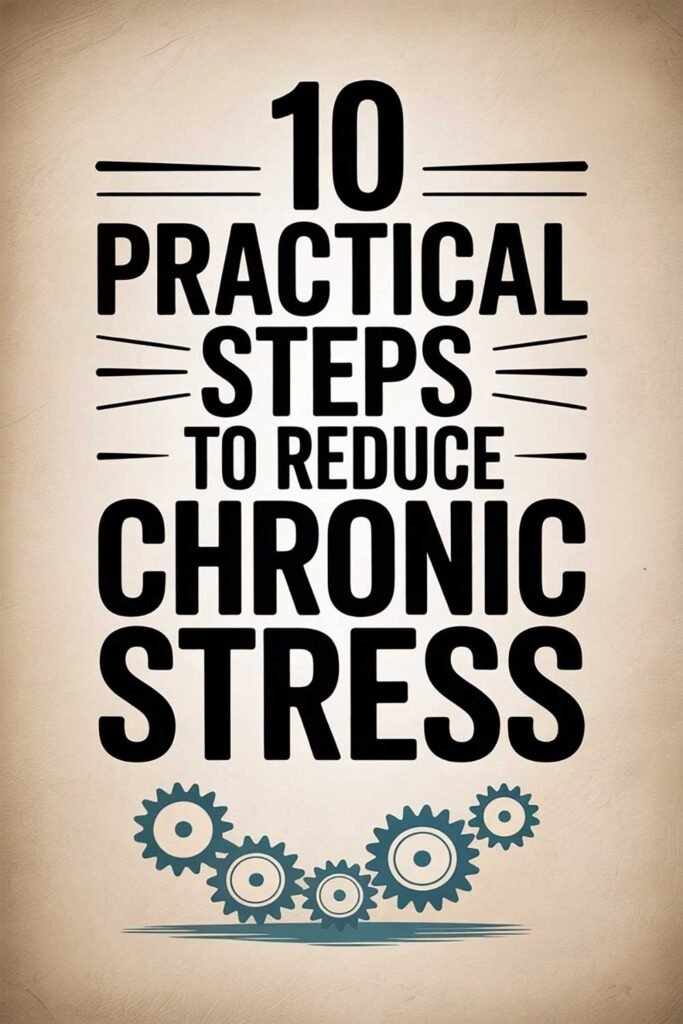
How to Tackle Debt Together as a Couple: A United Front for Financial Freedom
Debt can feel like a heavy, invisible third party in a relationship, silently adding tension, fostering blame, and creating a wedge between partners. Whether it’s student loans, credit card balances, car payments, or a mortgage, financial burdens are a leading cause of stress and conflict in relationships. It’s a challenge that many couples face, often inheriting individual debts into a shared life, or accumulating joint debt over time.

While tackling debt is daunting individually, doing it as a couple offers immense power. It transforms a solitary struggle into a shared mission, a burden into a bond-strengthening endeavor. However, it requires open communication, mutual commitment, and a unified strategy. Ignoring debt or allowing it to fester can erode trust and intimacy, but confronting it together can forge a stronger, more resilient partnership.
This article will guide you through the essential steps and strategies for how to effectively tackle debt as a couple, turning your financial challenges into opportunities for teamwork and building a future of shared financial freedom.
The Elephant in the Room: Why Debt Divides Couples
Before diving into solutions, it’s vital to acknowledge why debt often becomes such a contentious issue for couples:
- Blame and Resentment: One partner might blame the other for past spending habits, or resent carrying a debt that isn’t “theirs.”
- Differing Money Personalities: Spenders and savers often clash when it comes to debt repayment strategies.
- Lack of Transparency: Hiding spending or debt from a partner erodes trust and can lead to financial infidelity.
- Stress and Anxiety: The constant pressure of debt can lead to irritability, arguments, and a general sense of hopelessness.
- Misaligned Goals: If one partner prioritizes immediate gratification while the other focuses on long-term debt freedom, conflict is inevitable.
Recognizing these potential pitfalls is the first step towards creating a truly united front. Debt is a shared problem, regardless of how it originated, and tackling it successfully requires a shared solution.
Tackling Debt as a Couple: A Step-by-Step Guide
Here’s how to transform debt from a relationship strain into a catalyst for connection and financial success.
1. The Debt Date: Open and Honest Communication
This is the most critical first step. You cannot tackle what you do not fully understand together.
- The Strategy: Schedule a specific “Debt Date” – a calm, judgment-free discussion about your complete financial picture. Lay out all debts, including balances, interest rates, and minimum payments. Use pen and paper, a whiteboard, or a spreadsheet. No blaming, just facts.
- Real-Life Example: Sarah and Tom had individual student loans and joint credit card debt. Their first “Debt Date” was uncomfortable. Tom confessed a credit card he’d kept hidden; Sarah admitted to impulse shopping. But by laying everything bare, they finally had a full picture. They realized they collectively owed over $70,000. It was daunting, but also liberating to finally be honest with each other. This open dialogue is crucial for any couple’s financial journey and deeply impacts how to cultivate a healthy and loving partnership.
2. Merge Finances (Where It Makes Sense) & Set Shared Goals
While you don’t necessarily need fully joint accounts, a shared financial vision is paramount.
- The Strategy: Decide on a shared “money philosophy” and define joint financial goals. Will you combine incomes? Keep separate accounts but have a joint spending/savings account? Most importantly, agree on whyyou’re paying off debt (e.g., for a future house, travel, peace of mind). This involves setting how to create a monthly money goal plan that keeps you focused as a team.
- Real-Life Example: Maria and Alex decided to open a joint checking account for all shared expenses and debt payments, while keeping individual accounts for personal discretionary spending. Their shared goal was to pay off their $30,000 credit card debt within two years so they could start saving for a down payment on a house. This tangible goal motivated them both.
3. Create a Joint Budget (Zero-Based is Ideal)
A budget is your roadmap. A joint budget ensures you’re both working from the same map.
- The Strategy: Work together to create a detailed budget. For debt payoff, a zero-based budget (where every dollar has a job) is highly effective as it ensures maximum allocation to debt. Every dollar should be accounted for, including your debt payments.
- Real-Life Example: David and Emily, after consolidating their finances, sat down weekly to create a zero-based budget. They tracked every expense together, deciding where every dollar would go. This eliminated arguments about who spent what and forced them to jointly decide on priorities, directing more money towards debt and less towards unnecessary spending. They even used one of the 10 best apps for managing your finances effectivelyto help track their progress.
4. Choose a Debt Repayment Strategy (Snowball or Avalanche) Together
Agreeing on the method of attack prevents arguments later.
- The Strategy: Research the debt snowball vs. avalanche: which method works faster. The Debt Snowball provides psychological wins (paying off small debts first); the Debt Avalanche saves the most money on interest (paying off highest-interest debt first). Choose the one that best suits your combined personalities and motivation.
- Real-Life Example: Liam and Chloe had a mix of credit card debt and a car loan. Liam was analytical and preferred the Avalanche method, seeing the logic in saving interest. Chloe preferred the quick wins of the Snowball. They compromised: they tackled their smallest credit card using the Snowball for the first win, then switched to Avalanche for the remaining larger, higher-interest debts. This blend kept both motivated.
5. Find “Found Money” & Reduce Expenses Together
This is where teamwork amplifies results. Look for ways to save and earn as a unit.
- The Strategy: Brainstorm ways to cut down on shared expenses (e.g., meal prepping, reducing takeout, canceling unused subscriptions, optimizing household utilities). Also, explore ways to collectively boost income (e.g., selling unused items as a family, taking on joint creative projects). Consider creative ways to make money that most people overlook that align with your combined skills.
- Real-Life Example: Chris and Jen, determined to pay off their credit cards, started meal prepping all their dinners, significantly cutting their food budget. They also decided to have “no-spend” weekends, finding free activities like hiking or library visits. They even decluttered their garage and sold unused furniture online, with all “found money” directly going to debt. This unified effort made saving fun, demonstrating how to save money as a family without cutting out the fun.
6. Celebrate Milestones (Big and Small)
Debt payoff is a long journey. Acknowledge your progress to stay motivated.
- The Strategy: Set up small, non-financial rewards for reaching milestones (e.g., paying off the first $1,000, paying off one credit card). This keeps motivation high and reinforces positive behavior.
- Real-Life Example: Mark and Brenda had a massive student loan burden. When they paid off their first $5,000, they didn’t go out to dinner; instead, they had a special at-home “celebration meal” with their favorite cheap ingredients and spent the evening planning their next debt attack. Each milestone felt like a joint victory, reinforcing their partnership.
Beyond the Numbers: The Relationship Benefits
Successfully tackling debt together as a couple does more than just improve your financial statement; it profoundly strengthens your relationship.
- Increased Trust: Openness about money builds deep trust.
- Enhanced Teamwork: You learn to collaborate on a shared challenge, strengthening problem-solving skills.
- Improved Communication: Forced honest conversations about money spill over into other areas of your relationship.
- Shared Vision: Working towards a common financial goal aligns your future aspirations.
- Reduced Stress: Eliminating debt frees up mental and emotional energy, allowing you to enjoy each other more.
Think of your debt as a training ground for your relationship. By facing it together, communicating openly, and working as a unified team, you’re not just eliminating a financial burden; you’re building invaluable skills and a stronger foundation for a truly prosperous and loving partnership. Understanding each other’s the role of love languages in strengthening bonds can even play a part in how you approach shared financial goals, ensuring both partners feel supported and motivated.
20 Empowering Quotes on Couples, Debt, and Financial Teamwork:
- “A healthy relationship is a partnership, not a competition.” – Unknown
- “The strongest relationships are built on trust and communication.” – Unknown
- “Marriage is a partnership. Your money should be too.” – Dave Ramsey
- “Coming together is a beginning; keeping together is progress; working together is success.” – Henry Ford
- “Love doesn’t make the world go ’round. It’s the people who are willing to go around and make the world go ’round.” – Unknown (Applies to debt payoff teamwork).
- “Financial stress is often a symptom of not being on the same page.” – Unknown
- “A shared vision is the foundation of a strong partnership.” – Unknown
- “Debt is the worst poverty.” – Thomas Fuller (Best tackled together).
- “The secret to a happy marriage remains a secret.” – Henny Youngman (But financial transparency helps!).
- “The best way to get out of debt is to live on less than you make and work together.” – Unknown (Adapted)
- “Great things are done by a series of small things brought together.” – Vincent Van Gogh (Applies to paying off debt).
- “Teamwork makes the dream work.” – John C. Maxwell
- “Communication is the lifeline of any relationship.” – Unknown
- “When ‘I’ is replaced by ‘we,’ even illness becomes wellness.” – Malcolm X (Applies to financial wellness).
- “It’s not what you earn, it’s what you save, and how you save it together.” – Unknown (Adapted)
- “Money doesn’t buy happiness, but it can buy financial freedom, which removes a lot of stress.” – Unknown
- “A journey of a thousand miles begins with a single step.” – Lao Tzu (The first debt date).
- “Don’t just count your money, make your money count for your shared future.” – Unknown (Adapted)
- “The strongest bond of all is a shared struggle towards a common goal.” – Unknown
- “True wealth is not about money, but about moments and memories created together.” – Unknown (Achieved by being debt-free).
Picture This
Imagine two climbers tethered together, facing a steep, rocky financial mountain (debt). Individually, they might struggle, pull in different directions, or even fall. But when they communicate, synchronize their movements, share the load, and constantly check in with each other, that intimidating mountain becomes a shared adventure. One leads, the other belays. They celebrate each foothold gained, each difficult pitch overcome. The rope that once felt like a burden becomes a symbol of their unity and shared strength, pulling them steadily towards the summit of financial freedom, together.
Share This Article
Did this article help you see how to tackle debt together as a couple? Share it with friends, family, or on social media to help other couples unite their finances and conquer debt!
Disclaimer
This article is intended for informational purposes only and provides general financial and relationship guidance. It is not a substitute for professional financial advice, couples counseling, or legal counsel. Every couple’s financial situation and relationship dynamics are unique. Please consult with qualified professionals for personalized guidance.





